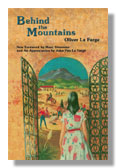 BEHIND THE MOUNTAINS
BEHIND THE MOUNTAINSFacsimile of 1956 Edition with a New Foreword by Marc Simmons
By Oliver La Farge
A novel about a family in remote northern New Mexico and the village people whose idyllic life finally succumbs to tourists and the outside world by Pulitzer Prize winner Oliver La Farge. Imagine yourself in a secluded green valley high in the mountains of northern New Mexico. You are one of a large family who own a sheep and cattle ranch surrounding the little village of Rociada. Your father, a Spaniard, is the revered and distinguished José Baca, and your mother, Doña Marguerite, is of French descent. Everyone in the village loves and respects your family as their patrones, appealing to them in times of trouble and bringing them gifts at Christmas.
Out of the everyday life of the Baca family, the village people, their customs and superstitions, Oliver La Farge has drawn, for example, the touching story of young Pino’s disillusionment with his hero, the horse thief Pascual. Or there is the account of the wedding shoes that pinched until the bride was in tears. Then there is Carmen’s discovery of treachery in the unlit hovel of the blind religious and the amusing tale of how Pino was punished for his arrogance the night the Archbishop came to dinner.
But beneath this rippling surface of adventure, tenderness, and humor rides the gradual encroachment of the outside world on Rociada, one of the last survivals of the ancient Spanish way of life in the United States. Finally, this idyllic village succumbs to the invasion of tourists and the machine, and Rociada becomes only a dream of the past.
Born in 1901, Oliver Hazard Perry La Farge is ranked among the literary lions of Southwestern letters. Since he died in 1963, his reputation has continued to grow and new honors have been added to his name. Laughing Boy, a novel of Navajo life, won the Pulitzer Prize in 1930, putting his name in lights before he was 30. Of his many books, Behind the Mountains has earned the affection of Santa Feans and New Mexicans, who continue to regard the book as a regional classic.
Santa Fe has changed a great deal—more than most people are prepared to acknowledge—since Oliver La Farge died. The small-town atmosphere with “its warmth and rewards” he often spoke of and admired is swiftly becoming a thing of the past. But with his name appropriately enshrined over the doorway of a library in Santa Fe, perhaps the Modern Age will not be inclined to forget his love for the city and for the people of the American Southwest. Sample Chapter
Softcover:
eBook:
Secure Movie & TV Rights
Website: http://books.google.com/books?id=-dDoux5a9OAC
Hardcover:
6 X 9
ISBN: 978-1-63293-430-7
224 pp.,$36.95
6 X 9
ISBN: 978-0-86534-676-5
224 pp.,$24.95
ISBN: 978-1-61139-524-2
224 pp.,$5.99
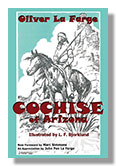 COCHISE OF ARIZONA
COCHISE OF ARIZONA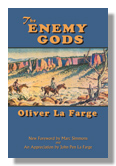 THE ENEMY GODS
THE ENEMY GODS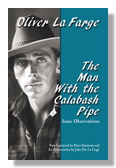 THE MAN WITH THE CALABASH PIPE
THE MAN WITH THE CALABASH PIPE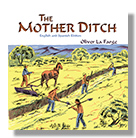 THE MOTHER DITCH
THE MOTHER DITCH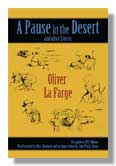 A PAUSE IN THE DESERT
A PAUSE IN THE DESERT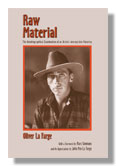 RAW MATERIAL
RAW MATERIAL